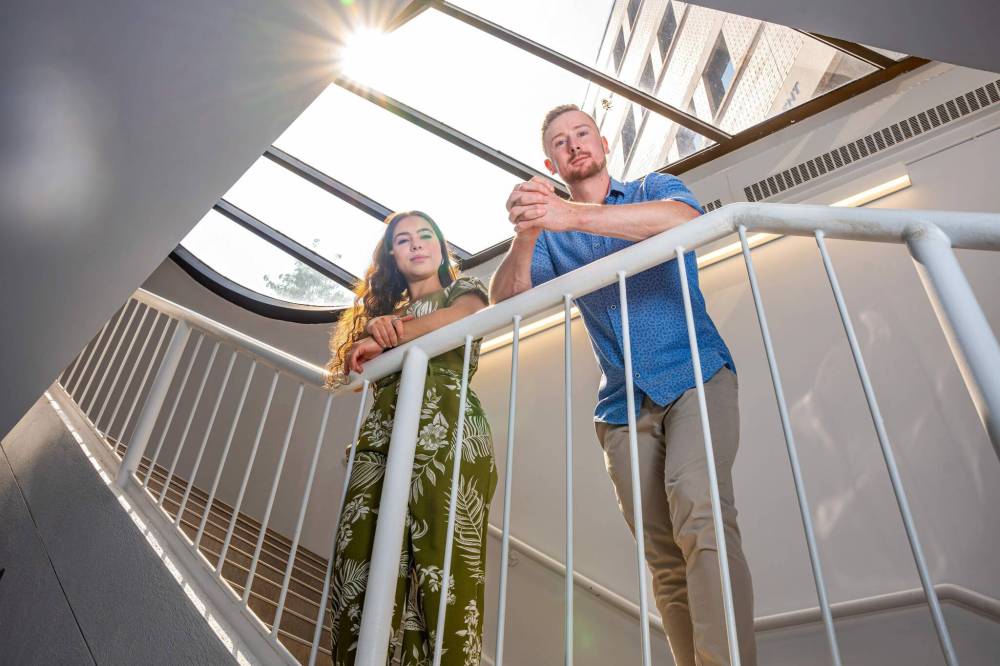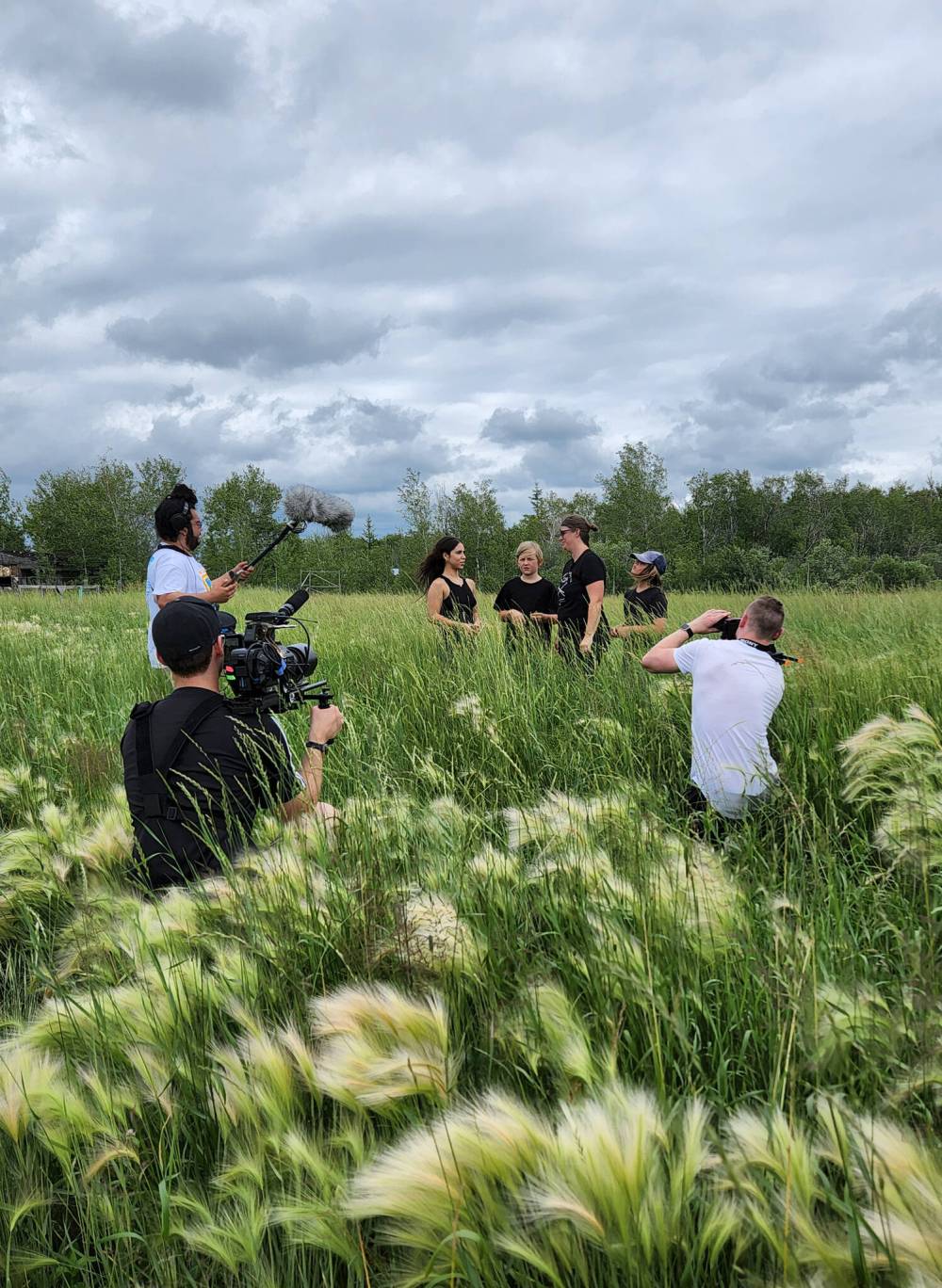Planet before profit: local businesses featured in students’ sustainability film
All three prioritize social and ecological well-being
Advertisement
Read this article for free:
or
Already have an account? Log in here »
To continue reading, please subscribe:
Monthly Digital Subscription
$0 for the first 4 weeks*
- Enjoy unlimited reading on winnipegfreepress.com
- Read the E-Edition, our digital replica newspaper
- Access News Break, our award-winning app
- Play interactive puzzles
*No charge for 4 weeks then price increases to the regular rate of $19.00 plus GST every four weeks. Offer available to new and qualified returning subscribers only. Cancel any time.
Monthly Digital Subscription
$4.75/week*
- Enjoy unlimited reading on winnipegfreepress.com
- Read the E-Edition, our digital replica newspaper
- Access News Break, our award-winning app
- Play interactive puzzles
*Billed as $19 plus GST every four weeks. Cancel any time.
To continue reading, please subscribe:
Add Free Press access to your Brandon Sun subscription for only an additional
$1 for the first 4 weeks*
*Your next subscription payment will increase by $1.00 and you will be charged $16.99 plus GST for four weeks. After four weeks, your payment will increase to $23.99 plus GST every four weeks.
Read unlimited articles for free today:
or
Already have an account? Log in here »
Hey there, time traveller!
This article was published 31/07/2024 (473 days ago), so information in it may no longer be current.
Three local businesses that prioritize social and ecological well-being are the focus of a new documentary.
Produced by students and instructors at the University of Manitoba’s Asper School of Business, Beyond Profit: Seeking Sustainability showcases efforts by owners and managers at Tall Grass Prairie Bread Co., BUILD Inc. and Long Way Homestead to run businesses that give more to the community than they take.
“I’m a bit of a skeptic when it comes to sustainability in business, but I’m hoping to discover businesses that actually place people and planet ahead of maximizing profit, and see if that’s even possible,” filmmaker and business student Nick Ridley says at the beginning of the documentary.
The film classifies the three companies as social and ecological thought businesses, which Ridley describes as businesses that seek to enhance social and ecological well-being while earning enough money to remain financially viable.
Tall Grass does this by using local ingredients, employing newcomers and buying biodegradable and compostable packaging even though it’s more expensive than the alternative.
BUILD — an acronym for Building Urban Industries for Local Development — is an Indigenous social enterprise non-profit contractor and training program that helps people who face barriers find employment, while Long Way Homestead is a fibre farm and wool mill 45 minutes southeast of Winnipeg that uses responsible land management practices to encourage ecological diversity.
Bruno Dyck, an Asper professor who co-leads a research project interviewing and studying social and ecological thought companies across Canada, encouraged Ridley.
Dyck suggested Ridley apply for an undergraduate research award to make the film. Receiving the award meant Ridley had a $7,000 budget and Dyck’s mentorship.
Along the way, Dyck connected Ridley to Savanna Vagianos, an Asper alumna and instructor who has worked as a research assistant, interviewing social and ecological thought firms and collecting data.
Vagianos served as a producer and appears throughout the documentary.
Rohan Shanker, an Asper alumnus and instructor himself, also joined the project as a producer.
“The fact that we produced a documentary is a testament to how open-minded Bruno is as an educator,” Ridley told the Free Press. “Despite knowing little about the film industry, he championed the idea as a new way to reach students and educators.”

NIC ADAM / FREE PRESS
Nick Ridley (right) and Savanna Vagianos are two of the people behind Beyond Profit: Seeking Sustainability, a 25-minute documentary produced by U of M students and professors that explores three local small businesses that prioritize social and ecological wellbeing over maximizing profit.
For Dyck, the documentary is the realization of a dream he’s had since he and his colleagues applied for research funding about five years ago.
At the time, Dyck thought it would be fun to create a film about the social and ecological thought paradigm.
“A lot of docs in this area are about the problems: too much greenhouse gas emissions, too much greed, the widening of the income gap,” Dyck said. “We wanted this film to not just be about the problems but actually be about the solutions.”
Filming the doc was “a cool experience” for Vagianos, who was new to filmmaking.
Interviewing numerous people at various locations, calling in favours to stretch the $7,000 budget, editing 30 hours of footage down to a 25-minute run time — all of it was eye-opening.
“To have it all come together was really cool to see,” Vagianos said.
Since production on Beyond Profit wrapped, the documentary has received national attention.
It won an award from the Toronto-based Canada Shorts film festival last year and was officially selected for this year’s WILDsound Film Festival.
The filmmakers hosted a Winnipeg première at the Manitoba Museum last month and the documentary is now available online.

SUPPLIED
Savanna Vagianos (centre left) interviews Long Way Homestead co-owner Anna Hunter, standing with her two children.
The filmmakers hope the documentary gives students and entrepreneurs a sense of the different approaches to business that exist.
“One of the central ideas of the film is that we need to reconsider net income as being the sole measure for business excellence, because we cannot afford to continue business practices that work to pollute and damage our own backyards for the sake of a share price,” Ridley said.
Vagianos agrees.
“Profit does not have to be maximized in order to survive,” she said. “It’s easy to feel that our situation is hopeless sometimes, so I hope the film helps people to see that it’s not all bad and there are people doing good things.”
aaron.epp@freepress.mb.ca

Aaron Epp reports on business for the Free Press. After freelancing for the paper for a decade, he joined the staff full-time in 2024. He was previously the associate editor at Canadian Mennonite. Read more about Aaron.
Our newsroom depends on a growing audience of readers to power our journalism. If you are not a paid reader, please consider becoming a subscriber.
Our newsroom depends on its audience of readers to power our journalism. Thank you for your support.
History
Updated on Wednesday, July 31, 2024 1:17 PM CDT: Clarifies headline

